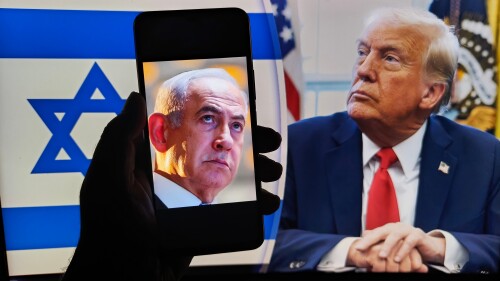After decades of efforts to keep the Hamas threat in check, Gaza’s southernmost city of Rafah — and the Philadelphi Route running between it and Egypt’s border — once again is a major problem for Israel.
Palestinians began digging tunnels under Israel’s border fences during the First Intifada in the late 1980s, and in the ensuing decades, the Israel Defense Forces tried a range of methods to uncover the tunnels and keep terrorist groups from bringing in deadly new weapons.
The focus was on the Philadelphi Route, the 14-kilometer security road dividing the Gazan and Egyptian sections of Rafah. But it was perilous work. During the Second Intifada, the corridor is where 13 IDF soldiers were killed in the 2004 APC Disaster, and Hamas managed to detonate explosives under the JVT outpost, killing five soldiers.
Read the full article at the Times of Israel.








